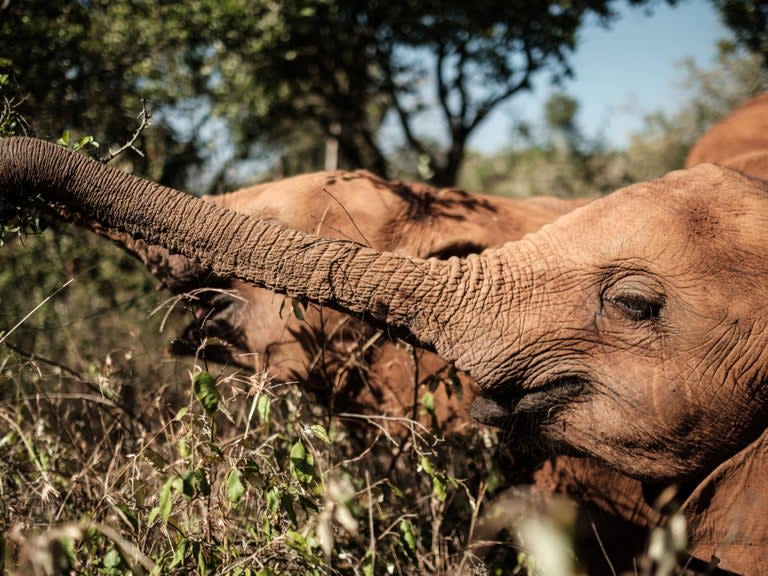Elephant extinction in Africa would ‘speed up climate crisis by letting more greenhouse gases escape’
Wiping out all of Africa’s elephants could accelerate Earth’s climate crisis by allowing 7 per cent more damaging greenhouse gases into the atmosphere, scientists say.
But conserving forest elephants may reverse the trend, providing a service worth $43bn (£34.3bn) in storing carbon, the academics found.
The research, published in Nature Geoscience, shows that the presence of the animals leads to higher numbers of large trees that better capture greenhouse gas, but without elephants, smaller trees less able to absorb carbon thrive.
The extinction of forest elephants could lead to a 7 per cent drop in “aboveground biomass” – the weight of trees including branches and foliage – in western and central African rainforests.
This would mean an extra 3 billion tonnes of harmful carbon entering the atmosphere, Fabio Berzaghi, the lead researcher, told The Independent.
Large herbivores are known to be vital in spreading seeds, but until now ways in which elephants affect rainforests have been something of a mystery.
But the study found that while grazing in the Congo and elsewhere, the animals clear away smaller vegetation, which over time leads to fewer but larger hard-wood trees, which live longer and lock away more carbon than soft-wood ones.
Earlier this month, Swiss scientists reported that planting billions of acres of trees in an area the size of the US could be the “most effective solution to climate change to date”.
Using model simulations, the scientists from the Laboratory of Climate and Environment Sciences in France said one animal for every square km increases forest biomass by 60 tonnes per hectare (0.01 square kilometres).
Mr Berzaghi and his colleagues found that when elephants thin out forests, eating those that are less than 30cm wide, there is less competition among the vegetation for light, water and space, which allows fewer and larger trees – and with a higher wood density – to emerge, increasing amounts of carbon stored.
The total leaf area – or canopy cover – was about 70 per cent more in areas with elephants than those without, so only about half the natural light reached the ground, inhibiting growth of small trees.
The research suggests elephants have an important role in shaping the structure of African forests.
“We speculate that the presence of forest elephants may have shaped the structure of Africa’s rainforests, which probably plays an important role in differentiating them from Amazonian rainforests,” the paper said.
The projected drop of about 7 per cent of carbon stocks “is more than the estimated loss in tropical America and Africa due to the disappearance of large-seeded trees and their dispersers".
The report added: “Elephant conservation may reverse this trend, which would represent a carbon storage service of US$43bn at a conservative carbon stock price.
“The value of the ecosystem services provided by the forest elephant and other megaherbivores should be reassessed in relation to carbon storage policy, forest management and conservation.”

 Yahoo News
Yahoo News 

